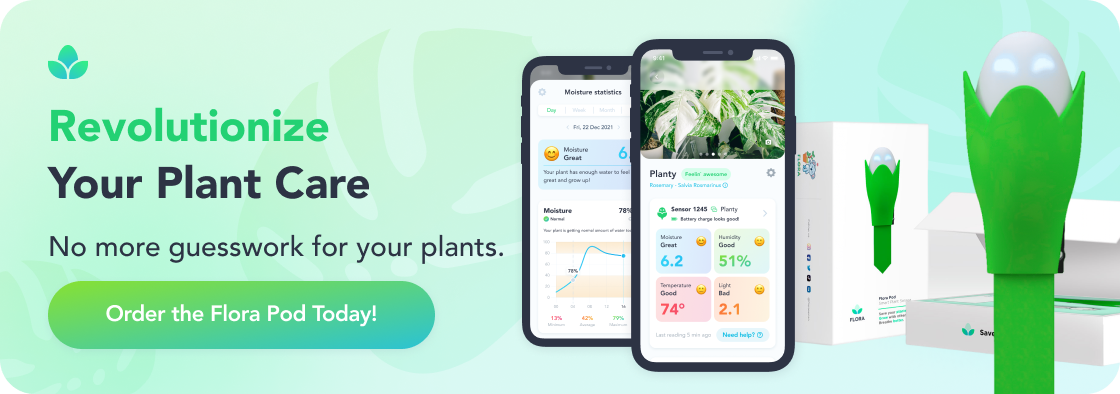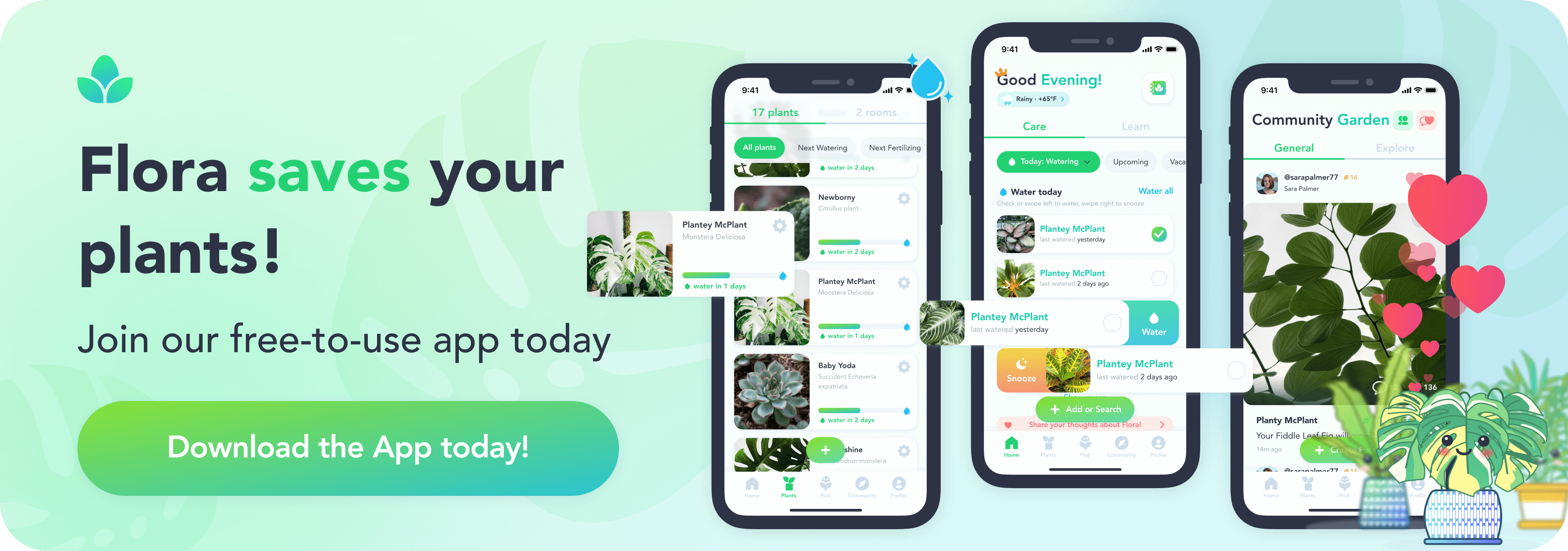Are Corn Plants Toxic? Safety Tips for Pet Owners

Corn plants (Dracaena fragrans) are admired for their lush foliage and ease of care, making them a popular choice for indoor gardening enthusiasts. However, pet owners often question, "Are corn plants toxic?" This comprehensive guide addresses the concerns regarding the toxicity of corn plants to pets and offers safety tips for pet owners.
Corn Plant Toxicity
Yes, corn plants are toxic to pets. They belong to the Asparagaceae family and contain saponin, a substance that, if ingested, can cause adverse effects in dogs, cats, and horses. The clinical symptoms exhibited by pets after ingesting parts of the plant include vomiting (sometimes with blood), loss of appetite, depression, hypersalivation in dogs, and dilated pupils, increased heart rate, and difficulty in breathing in cats.
Are Corn Plants Toxic To Cats?

Yes, corn plants (Dracaena fragrans) are indeed toxic to cats. These plants contain saponin, a substance that can cause a variety of adverse reactions if ingested by felines. Symptoms of corn plant poisoning in cats may include dilated pupils, depression, anorexia, hypersalivation, and vomiting, which could sometimes contain blood. The toxic reactions occur because saponins irritate the lining of the gastrointestinal tract. It's crucial for cat owners to keep these plants out of reach and to contact a veterinarian immediately if they suspect their cat has ingested any part of a corn plant.
Are Corn Plants Toxic To Dogs?
Similar to their effect on cats, corn plants are also toxic to dogs. The saponins present in corn plants can lead to gastrointestinal distress in dogs, manifesting symptoms such as vomiting (sometimes with blood), loss of appetite, depression, and hypersalivation. Although the ingestion of corn plants by dogs does not typically lead to severe poisoning or death, it can cause significant discomfort and potential health issues like blockage or indigestion if consumed in large quantities. Dog owners are advised to be vigilant and seek veterinary care if their pet comes into contact with or consumes parts of a corn plant.
Are Corn Plants Toxic To Humans?
For humans, corn plants are generally considered non-toxic. Unlike pets, most people do not experience severe adverse effects from handling or coming into contact with corn plants. However, it's worth noting that consuming parts of the plant is not advisable, as it can potentially cause mild stomach upset due to the saponins. This is especially pertinent in households with young children who might be tempted to chew on plant parts. As with any houseplant, maintaining good hygiene practices such as washing hands after handling plants can minimize any risk of irritation or discomfort.
Safety Measures for Pet Owners

Immediate Response
When a pet ingests a toxic plant like the corn plant, the situation demands an immediate and informed response. First and foremost, recognizing the symptoms of toxicity—such as vomiting, lethargy, loss of appetite, or more severe signs like difficulty breathing or changes in gum color—is crucial. If any of these signs are observed, contacting a veterinarian or an emergency pet poison control hotline immediately is essential. Providing a sample of the ingested plant can be incredibly helpful for the vet to make a rapid and accurate diagnosis. Fast action can make a significant difference in the outcome for your pet, minimizing the risk of severe complications or ensuring quicker recovery.
Pet-Friendly Houseplants
Introducing houseplants into your home adds beauty and can improve air quality, but ensuring these plants are safe for all family members, including pets, is vital. Non-toxic alternatives to the corn plant include the Spider plant (Chlorophytum comosum) and the Money Tree (Pachira aquatica). These plants are not only safe for pets but are also known for their air-purifying qualities. The ASPCA offers a comprehensive list of non-toxic plants, providing a valuable resource for pet owners looking to enrich their living spaces without compromising the health and safety of their pets. Opting for such alternatives allows pet owners to enjoy the dual benefits of greening their homes and maintaining a safe environment for their pets.
Preventive Strategies
Prevention is always better than cure, especially when it comes to protecting pets from potential hazards like toxic plants. Keeping such plants out of reach or eliminating them from your home entirely is a prudent strategy. Consider elevating plants on high shelves or hanging planters, and ensure that any plants within your pet's reach are safe if ingested.
Additionally, providing a stimulating environment with plenty of toys and engaging activities can deter pets from nibbling on houseplants. Interactive toys, puzzle feeders, and regular playtime can help satisfy your pet's curiosity and chewing instincts, diverting their attention away from potentially harmful plants. Creating a pet-friendly indoor garden with safe plants like cat grass for felines or hardy, non-toxic foliage for dogs can also offer them an acceptable outlet for their natural instincts.
By adopting these measures, pet owners can ensure the well-being of their furry companions while enjoying the many benefits that indoor plants offer. Prioritizing non-toxic plant selections and maintaining a stimulating environment for pets are key strategies in preventing plant-related incidents and fostering a safe, harmonious living space for all.
Fern's Leafy Learnings
Corn plants are toxic to dogs and cats, containing saponin that can cause gastrointestinal issues and other health concerns.
Immediate veterinary consultation is necessary if a pet ingests parts of a corn plant.
Pet owners should consider non-toxic houseplants to ensure the safety and well-being of their pets.
Engaging pets with toys and activities can deter them from chewing on houseplants.
Educating oneself on the toxicity of plants before introducing them into homes with pets is crucial for preventing accidents.
Deepen Your Roots with Flora
At Flora, we not only bring you a vibrant selection of locally sourced, rare, and delightful plants, but we also serve as your continuous guide in your plant parenting voyage, ensuring every leaf in your sanctuary thrives. With our Flora Pod™ technology and a nurturing community of over 250,000 plant lovers, we cultivate a space where every plant parent - novice or expert - can blossom.
We propagate with a commitment to sustainability, connection, and ceaseless growth, fostering a community where each member, and their plants, are cherished and nurtured.
Crave a lush, thriving green space? Adopt a plant from Flora today!
Flora Pod™ is featured on Shark Tank!

5 Signs Your Houseplant Needs Repotting Now
Mar 02, 2026
6 Anthurium Benefits You Didn't Know About
Mar 02, 2026

How to Prune Your Houseplants Before Spring Growth Season
Mar 02, 2026

10 Best Houseplants for Spring Repotting Success
Mar 02, 2026

Can ZZ Plants Survive in Low Light Conditions?
Mar 02, 2026

5 Critical Pre-Spring Pruning Tips for Houseplants
Mar 02, 2026

Can Succulents Survive Winter Outdoors in Your Climate Zone?
Mar 02, 2026

Which Houseplants Are Toxic to Cats and Should You Avoid Them?
Mar 02, 2026




